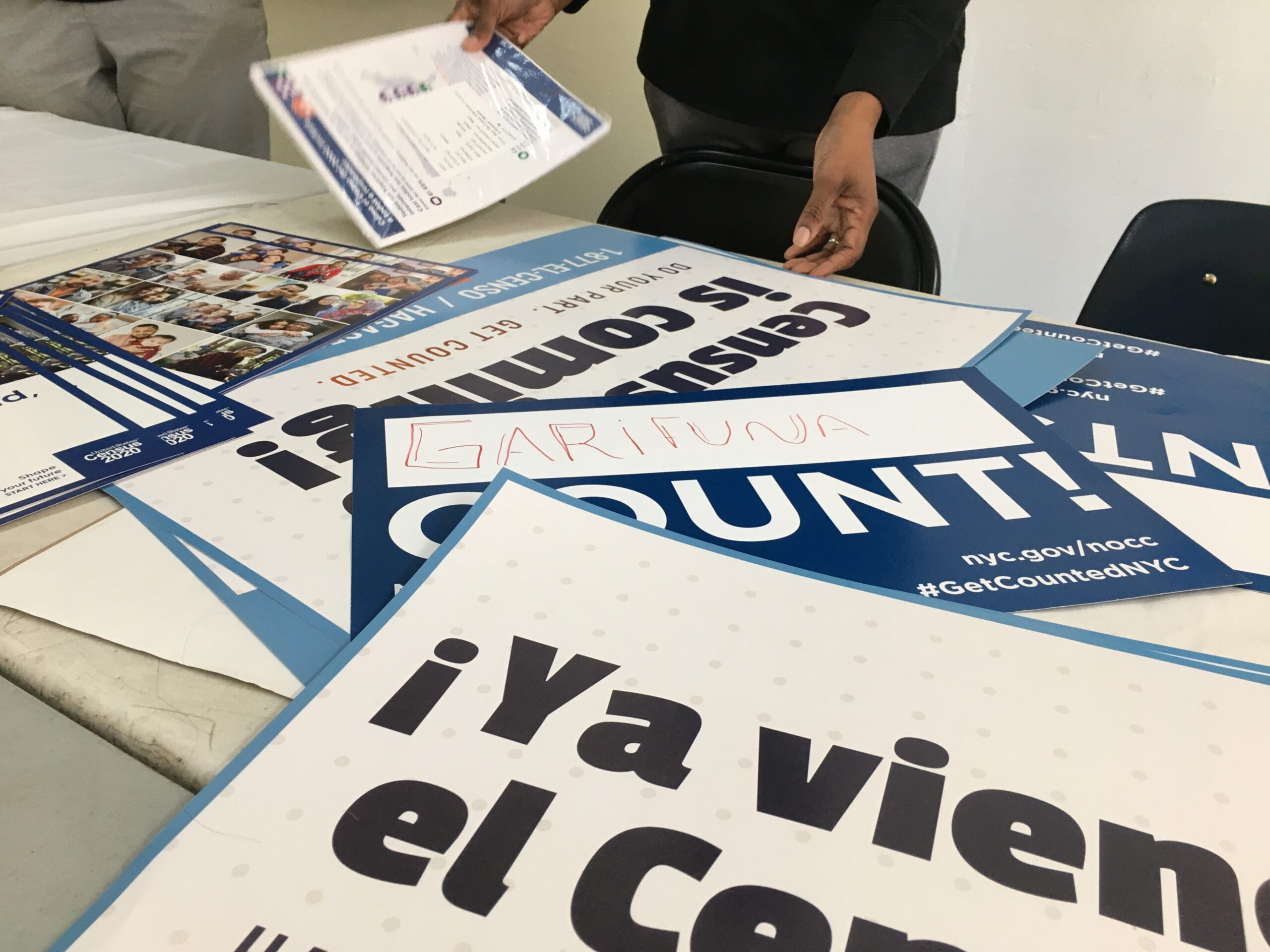Isha Sumner was confronted with something she didn’t expect on Thursday: silence. As a local
Census 2020 manager, Sumner expected the opening of the online census to be a busy
day for her team. Instead, she didn’t hear from anyone.
“My team is so silent,” Sumner said. “That is more terrifying than the coronavirus itself.”
Sumner thinks everyone is processing the intensification of COVID-19, often referred to as the
coronavirus. Her organization, Garifuna Community Services, was planning to hold a pop up on
Thursday with stations to assist the immigrant community with the online census. The event was
canceled due to the pandemic.
Immigrant groups in the Bronx have been working for months to ensure an accurate count for
their communities. Now, the coronavirus is jeopardizing their work.
The Census Bureau reassured the public that, despite the coronavirus, it’s still just as easy to
participate in the census.
In a press release on Wednesday, the Census Bureau said, “The key message right now for
anyone with questions about how COVID-19 will affect the 2020 Census: It has never been
easier to respond on your own, whether online, over the phone or by mail—all without having to
meet a census taker.”
But within immigrant communities, accessing the census isn’t that simple.
Diya Basu-Sen, executive director of Sapna NYC, a nonprofit that supports Southeast Asian immigrant women, said her community needs assistance to complete the census.
“Saying that the census is corona-proof is kind of privilege speaking,” said Basu-Sen.
Many immigrants Sapna NYC works with don’t have internet access or computer literacy.
Many in the Southeast Asian immigrant community also don’t speak English and the online
census isn’t offered in languages such as Bengali or Urdu.
There are online census guides in 59 languages but Basu-Sen said that without English
proficiency and computer literacy, much of her community can’t access the guides on their own.
Sapna NYC was going to address these issues by holding events where workers would answer
questions and help immigrants complete the census online. Now, those events are being canceled.
Because of the sweeping cancelations and continued spread of the coronavirus, Basu-Sen thinks
accuracy in the count will take a hit, particularly in immigrant communities.
“People who are more privileged, who have more wealth, more access, more knowledge, will be the ones who are counted even more so,” said Basu-Sen.
The NYC Census 2020 managers disagree.
Alyson Tarek, grants program director of NYC Census 2020, said the coronavirus will not
impact accuracy.
“We know that there might be some initial lower responses,” said Tarek. “But we’re working
very diligently to ensure that whatever we can do to have people get online and on the phone to
do the census, that they can still do.”
Tarek said NYC Census 2020 is working to emphasize methods of outreach to New Yorkers that
will most likely revolve around tech and phone calling as opposed to being out on the streets.
Some politicians have their doubts though. In a press release on Thursday, Congressman José
Serrano of the 15th Congressional District of New York, said the coronavirus could negatively
influence people’s self-response rate for the census. Serrano also acknowledged that access has
become a problem.
“The measures that the government and local businesses are taking to prevent the spread of the
disease will be disruptive and may prevent people from accessing the help and resources they
need to complete the census,” said Serrano.
With the cancellation of their most recent workshops and pop ups, Garifuna Community Services
is already experiencing disruption. The organization aids the Garifuna community in the Bronx,
an indigenous group originally from the Caribbean.
Over the past few months, Garifuna Community Services has been conducting workshops,
presentations and outreach in the community to educate the population about the importance of
the 2020 Census.
Lidia Ordonez is an example of someone who benefited from that work. Ordonez, an immigrant
from Honduras, knew of the census but didn’t understand its importance until she learned more
about it from Garifuna Community Services. Now, she is passionate about representing her
identity as a Garifuna.
“The government has to know we’re here, who we are and what we need,” said Ordonez. “We
need to make ourselves be seen.”
But with the cancellation of almost all their planned in-person community assistance, Garifuna
Community Services must readjust its strategy.
Sumner said they will shift their energy to a greater online and phone presence. This may include
working with social media influencers within the Garifuna community to lead instructional
livestreams and online census assistance.
Though the immediate blowback from the coronavirus has been damaging, Sumner still has hope
looking forward.
“I don’t like staying with the problem, that drives me insane,” said Sumner. “So I’m gonna focus
on the solution.”

